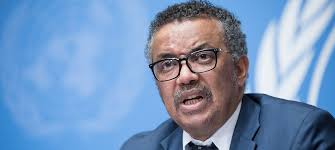The World Health Organization (WHO) on Wednesday stressed the urgent need to reduce inequalities in the availability of good hand hygiene and other infection prevention and control measures between high and low-income countries.
The latest global survey on the implementation of national infection prevention and control programmes published by the UN agency noted that COVID-19 has dramatically demonstrated how important good hand hygiene practices are in reducing the risk of transmission, when used as part of a comprehensive package of preventative measures.
Good hand hygiene, according to the new report is also vital in preventing any infections acquired in health care, the spread of antimicrobial resistance and other emerging health threats.
It said that infection acquired during health care delivery is a major global health problem, but patients in low- and middle-income countries are twice as likely to experience this as patients in high-income countries.
Official estimates show that the risk in intensive care units (ICU), especially among newborns, is between 2 and 20 times higher and one reason for this is that in some low-income countries only 1 in 10 health workers practise proper hand hygiene while caring for patients at high risk of health care-associated infections in ICU – often because they simply do not have the facilities to do so.
According to WHO’s survey on 88 countries, the level of progress of hand hygiene and infection prevention and control programmes, especially regarding actual implementation, was significantly lower in low- than in middle- and high-income countries.
Healthcare acquired infections affect millions of patients and health workers worldwide every year, it said.
However, the UN agency noted that countries and facilities around the world do not have equal opportunities to put in place the appropriate systems and the right practices to avoid suffering from these infections.
CU/as/APA


